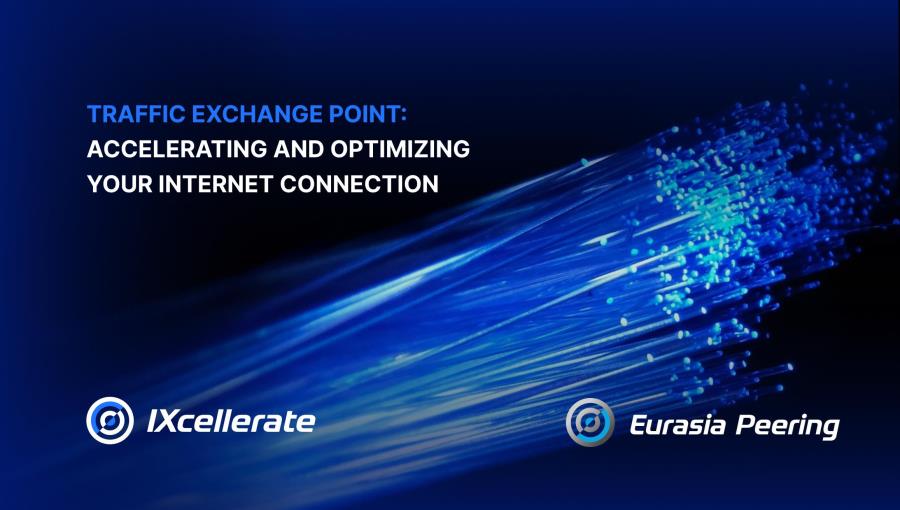
In today’s world, the internet has become an integral part of our lives. We use it for work, entertainment, communication and information. But how can we ensure uninterrupted and fast service for all users when data travels through multiple nodes and routes of the global network?
The solution to this challenge lies in the use of Internet Exchange Points (IXPs).
IXP is a specialized network infrastructure that allows various Internet providers, data centers and services to exchange data directly. One can think of an IXP as a large transportation hub where instead of trains and airplanes, streams of internet traffic circulate.
A traffic exchange point is also a physical infrastructure, a location where the backbone channels of various operators intersect. Gaining access to a specific IP address is not difficult. It requires placing equipment at a site where IXP nodes are present and then laying a connection line to the IXP. IXcellerate operates one such traffic exchange point—the Eurasia Peering IX platform. The Eurasia Peering IX nodes are located in both IXcellerate campuses – North and South – as well as at the MMTS-9 site. All locations are interconnected.
Advantages of using Traffic Exchange Points
A traffic exchange point brings together different networks to facilitate more efficient and faster data exchange. Thanks to direct connections between IP participants, data is transmitted along the shortest paths, significantly reducing loading times for web pages, cloud services, videos and online games. Collectively, IXPs offers its end customers the following benefits:
- Accelerated Internet connection: data is transmitted over shorter routes, reducing latency when accessing websites and online services.
- Resource savings: connecting to an IXP helps reduce costs for data transmission through connections to upstream operators, as information is exchanged directly between peering participants, bypassing intermediaries.
- Increased Reliability: IXPs ensure direct data transmission between peers, minimizing the risks associated with outages on transit networks. Additionally, they provide opportunities for redundancy and more stable operation of critical network services.
Who can particularly benefit from Traffic Exchange Points?
Traffic exchange points are especially relevant for companies that handle large volumes of data, such as:
- Carriers: to ensure high speed and quality delivery of internet traffic to their customers.
- Voice and data transmission services: to enhance the quality and speed of information transfer.
- Media content delivery services, especially video streaming: for quick downloads and no delays during video broadcasts.
- Large projects covering multiple regions, such as social networks, online gaming platforms and cloud service providers, ensuring stable operation and minimal latency when using their services.
Major traffic exchange points in Russia
Several major traffic exchange points operate in Russia, including:
- MSK-IX: the first traffic exchange point in Russia, established in 1995 in Moscow.
- DataIX: an IXP uniting over 500 participants from 14 countries.
- Eurasia Peering IX: a traffic exchange point based on the premises of IXcellerate data centers. One of the most dynamic IXPs in Russia and the CIS, uniting over 200 participants.